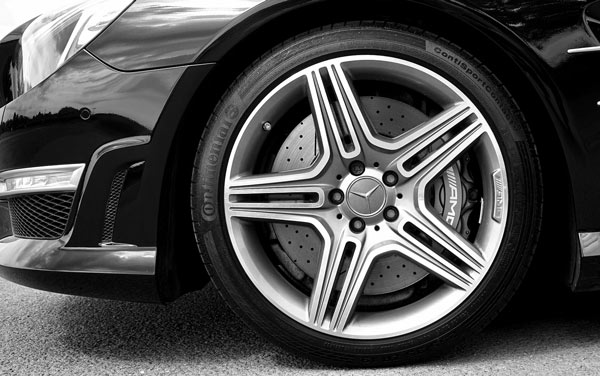When you’re buying a tyre, some decisions are pretty simple. Avoiding part-worn tyres, for example, is a complete no-brainer. Others are less straightforward — such as whether you should opt for a bargain basement tyre brand or stump up the extra for a premium make. In this two part post, we’ll give you our take on this, starting with the question of whether premium tyres are actually any better.
Are premium tyres just marketing hype?
Ask a selection of people about their views on paying for premium makes and you’ll find that they mostly fall into two camps:
- The ‘get-what-you-pay-for’ people, who insist that a high price reflects a quality product.
- The ‘you’re-only-paying-for-the-name’ advocates, who argue that the only difference between brands is in how they are marketed.
- The ‘accept-whatever-the fitter-recommends’, who see the bill as something that they have no control over. A bit like the weather.
So who is right?
Premium tyres: you do get what you pay for
It’s true that there are many industries where the price you pay doesn’t really reflect the value of the underlying product. For example, in the food industry, it’s not uncommon for cheap supermarket own-brands to do better than vastly more expensive brands when they’re compared in blind taste tests. In those industries, any real differences between the brands is strictly in the eyes of the beholder (and maybe in the heads of the marketing teams).
But as tyre fitters with over twenty years experience, we can tell you that this isn’t the same for the tyre industry. Premium tyres do out perform budget tyres on a range of important measures.
Now fair enough, this is a generalisation, and individual makes of budget tyres can sometimes out-perform individual premium tyres — especially if we pick out just one characteristic (such as rolling resistance). Nevertheless, the overall point holds.
You can find plenty of real-world evidence for this. Fleet News, for example, reports a haulage company that found their budget tyres delivered 17,000 miles less mileage than their usual premium-quality Bridgestones. The site also explains how enforcement agency Bristow and Suiter were forced to upgrade from budget to mid-range tyres after their drivers complained about poor levels of grip on wet or greasy roads.
This difference in grip can also be seen quite graphically in a comparison test carried out by The Telegraph:
Tyre Reviews made a similar premium-to-budget comparisons, but quantified the results. They found that on a wet surface, premium Continentals generated 0.82g in an emergency stop, and 0.77g when cornering. By comparison, their budget tyre only managed 0.61g in the emergency stop and 0.55g in the corner.
Granted, these types of comparison are a wee bit unscientific. All sorts of factors, such as the driver’s expectations could influence the results. If you want something a bit more rigorous, look no further than the EU tyre labelling systems. These rate tyres on rolling resistance, wet braking and noise, and the tests carried out under controlled conditions. From this, it’s easy for consumers to see for themselves how premium tyres perform. Again, it’s often in wet grip where the superior performance of premium tyres is most telling.
Why premium tyres perform better
If you think that a tyre is just a round bit of rubber, then it’s hard to see why premium tyre should do any better than a budget brand. However, as we explained in a previous post, tyres are deceptively complex. Producing a top-performing tyre requires years of research, and uses dozens of materials developed by teams of scientists. And none of that comes cheap. Budget companies simply lack the resources and very expensive know-how to duplicate this.
Are premium tyres right for you?
Considering all of the above, does this mean that premium tyres are always the best option? Not at all. It’s a question of horses for courses. It would make zero sense to fit super-expensive tyres on your grandmother’s 2,000 mile a year Nissan Micra. Or conversely, to kit out your hard-driven BMW M5 with cheap-as-chips budget tyres. Most of us, however, fit somewhere between the two extremes. To do the question justice, we’ll look at the advantages and disadvantages of buying premium makes more fully next time — so stay tuned!
For expert advice on tyre choice, competitive prices and the convenience of getting tyres fitted at home or at work, contact us today.

